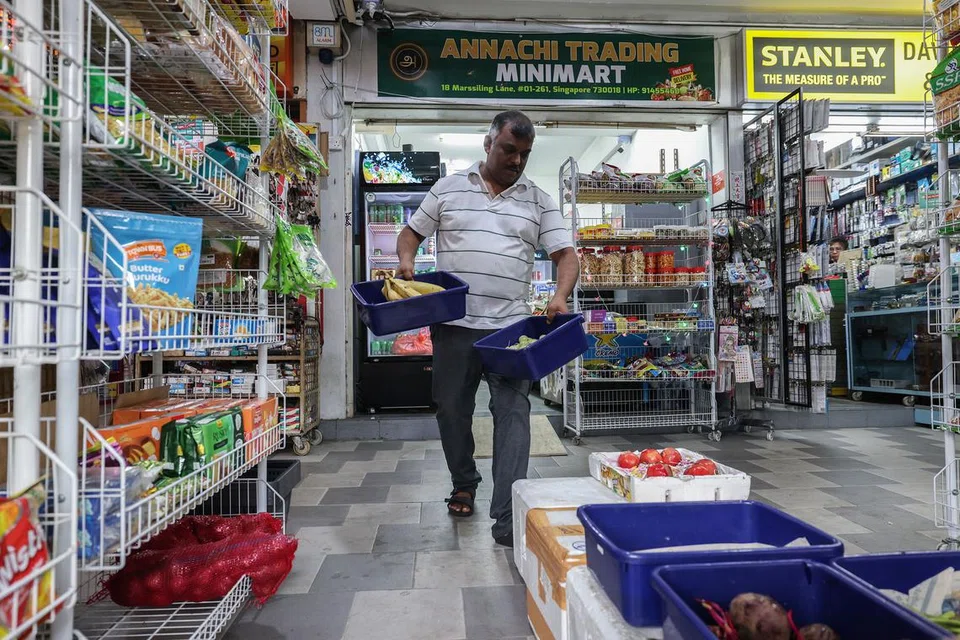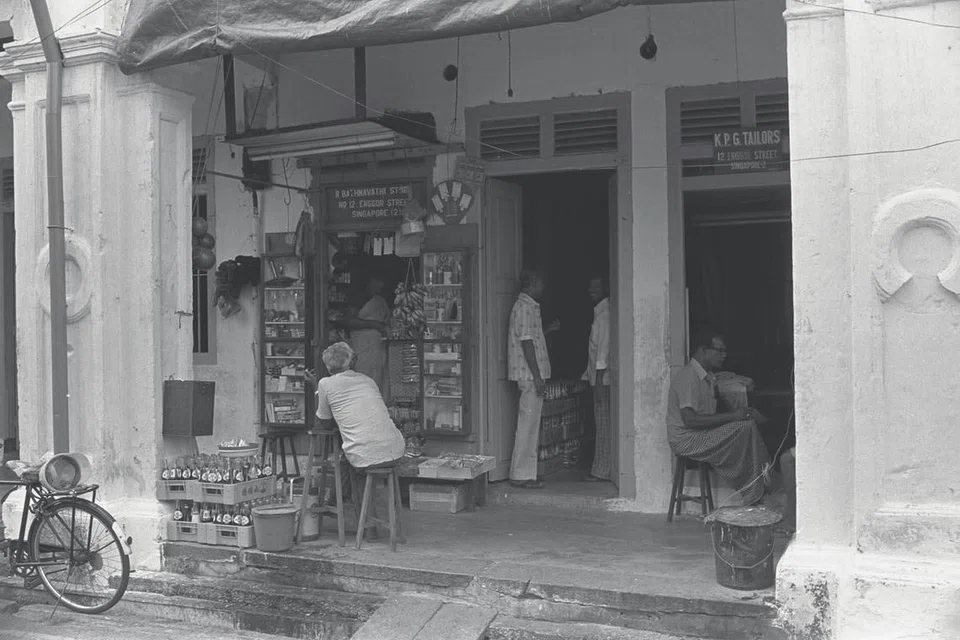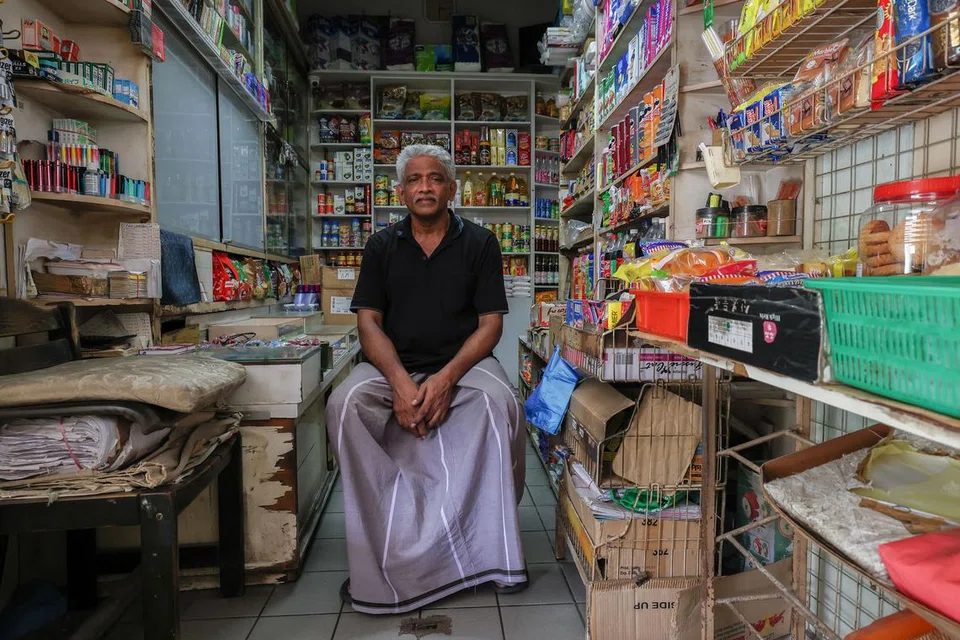The S S Mohd Mydeen shop has been a cornerstone of a quiet neighbourhood in Dorset Road near Farrer Park for 40 years.
Known colloquially as “mama shops” (mama means uncle in Tamil), such standalone kiosks that sell provisions and sundry goods have been a fixture of HDB living for decades.
Selling everything from soap and canned food to toys, these void deck sundry stores – widely appreciated for their proximity and convenience – were introduced by HDB in the 1970s. At their peak in the 1980s and 1990s, there were more than 500 such provision shops.
But many of these businesses have shut, and operators who still run them say earnings have fallen over the years as they face rising rental costs and growing pressure from supermarkets, convenience stores and online grocers. Newer HDB estates also have less expansive void decks which do not cater space for these stores.
Figures from HDB, according to an ST report (published on Sept 27), show that the number of such shops has fallen over the years. In 2014, there were 380 of these provision shops; today, there are fewer than 240.
Monthly rental typically costs about $2,000 depending on the location of the shop.
“The future of shops like mine is bleak,” said Mr Mohammad Ishak, 62, who runs the S S Mohd Mydeen shop, which started in 1984 and has been passed down two generations.
“This is more than a business for me; it’s history, family and community all in one. This is the only trade I know.”
Mr Ishak’s shop originally started in 1958 in Rowell Road in Little India, where his father and uncle ran the business. It later relocated to Bukit Panjang and then to Dorset Road.
Mr Ishak has maintained the shop’s facade and signboard since its first day in Dorset Road. “I did not carry out any renovation work to change the look of my shop. I want it to look as authentic as how a mama shop should be,” he said.
“Last time, there were many schools in the vicinity, so the bulk of my customers were students. Now there is only one school nearby. Serving the children was joyful, as sometimes they wouldn’t have enough money to buy the things they need, but I would just let it go.”
Mr Ishak, a father of three who relies solely on his shop for a living, sells shaving blades, sewing kits, cosmetic items, dried fruits and tidbits – to keep the “nostalgia alive”.
After surviving the pandemic, he adopted digital payment options and made his shop a Shopee parcel collection point.
He plans to run the shop for as long as he can, but accepts that the shop might have to shutter for good soon. “My two daughters and son studied well and have promising careers. I do not want them to take over this trade as it’s pointless,” he said.
While many mama shop owners like Mr Ishak are looking to exit the trade, there are still some who are hopeful, such as Mr Ananth Krishnan, who six months ago opened Annachi Minimart in Marsiling.
The 43-year-old said he believes traditional provision shops still have a future.
“I was inspired by my childhood memories of working in my dad’s mama shop back in Tamil Nadu,” said Mr Ananth, who worked as a technician for 20 years. “I wanted to bring that sense of warmth and familiarity back to Singapore.”
While his minimart is a modern “upgrade” of a traditional-looking mama shop, Mr Ananth stocks it with the quintessential mama shop items, including masala powder and millets imported from India.
“I know it won’t be easy, but I believe there’s still a place for us in this community,” he said. “People want that personal touch and that’s something big chains can’t offer.”
Embracing the digital age
ARV Stores was once a traditional mama shop in Changi Road for over 60 years, but recently underwent a renovation to embrace the conveniences of the digital age – and to better compete in Singapore’s modern retail landscape.
Ms Ramya Vadivelu, 32, who runs the shop with her husband, said the new convenience store platform has allowed her to expand her range of merchandise. She is also looking to implement home-delivery service to attract customers.
“With rising rental costs and competition from larger convenience store chains, I decided it was time for change,” said Ms Ramya.
“I believe that this blend of old and new is the future for traditional shops. My shop used to be very popular in the past, but now I can’t even see a profit of $10 on a normal day.
“Customers are comparing mama shops with NTUC and Sheng Siong, which is not fair at all. We are already selling things at a cheaper price, but customers still bargain.”
Many of these mama shops have been in neighbourhoods for so long that many patrons said they remind them of the years gone by.
“Mama shops are woven into the fabric of local communities,” said Archana Begum, 36, a resident of Toa Payoh, where there used to be one such shop at every estate.
“During my school days, they used to serve as gathering spots for students after school, and we cherished these places for their warm, familiar atmosphere.
“In Toa Payoh now, there’s maybe one mama shop left… These shops form a huge part of Singapore’s heritage and they should be preserved.”
In recent years, the National Heritage Board has introduced heritage trails to preserve Singapore’s history and culture – and Mr Ishak’s shop is one of the spots listed on the Pek Kio Estate Heritage Trail, which was launched by non-profit organisation My Community.
“It’s so heartening to know that my shop is one of the places people get to visit when they take part in the trail. With that I can attract more customers and hopefully, mama shops will never be forgotten,” said Mr Ishak.




